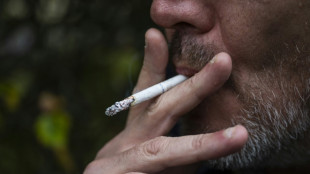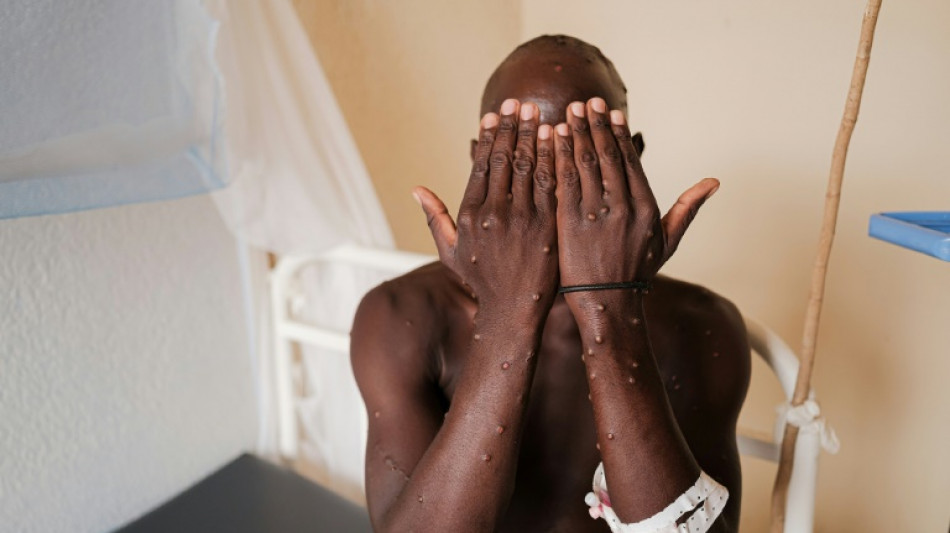
-
 Iran Nobel winner released for three weeks, 'unconditional' freedom urged
Iran Nobel winner released for three weeks, 'unconditional' freedom urged
-
Red Cross marks record numbers of humanitarians killed in 2024

-
 Johnson's Grand Slam 'no threat', says World Athletics boss Coe
Johnson's Grand Slam 'no threat', says World Athletics boss Coe
-
Qatar's emir and UK's Starmer talk trade as state visit ends

-
 Cuba suffers third nationwide blackout in two months
Cuba suffers third nationwide blackout in two months
-
Russia, Ukraine to send top diplomats to OSCE summit in Malta

-
 Spanish royals to attend memorial service for flood victims
Spanish royals to attend memorial service for flood victims
-
LPGA, USGA new policy requires female at birth or pre-puberty change

-
 Stick to current climate change laws, US tells top UN court
Stick to current climate change laws, US tells top UN court
-
British Museum chief says Marbles deal with Greece 'some distance' away

-
 Pope Francis receives electric popemobile from Mercedes
Pope Francis receives electric popemobile from Mercedes
-
Gaza civil defence: thousands flee Israeli strikes, evacuation calls

-
 Trump names billionaire private astronaut as next NASA chief
Trump names billionaire private astronaut as next NASA chief
-
Pidcock to leave INEOS Grenadiers at end of season

-
 Seoul stocks weaken, Paris advances despite political turmoil
Seoul stocks weaken, Paris advances despite political turmoil
-
South America summit hopes to seal 'historic' trade deal with EU

-
 DAZN awarded global TV rights for Club World Cup
DAZN awarded global TV rights for Club World Cup
-
Top executive shot dead outside New York hotel
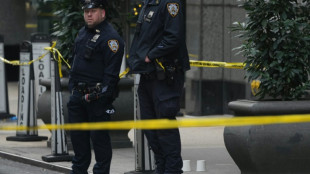
-
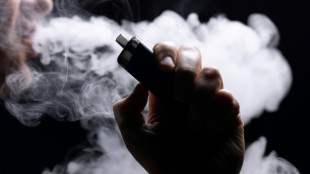 Vaping while still smoking unlikely to help quitters: study
Vaping while still smoking unlikely to help quitters: study
-
British Museum chief says Parthenon Marbles deal with Greece 'some distance' away

-
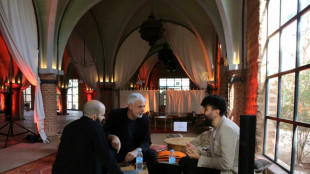 'Creating connections': Arab, African filmmakers gather at Morocco workshops
'Creating connections': Arab, African filmmakers gather at Morocco workshops
-
Iran frees Nobel winner for three weeks, sparking calls for 'permanent' release

-
 Brazil's Minas cheese gets added to UNESCO list
Brazil's Minas cheese gets added to UNESCO list
-
Top US executive shot dead in New York City: media

-
 Trump's nominee to run Pentagon hangs by a thread
Trump's nominee to run Pentagon hangs by a thread
-
GM announces more than $5 bn hit to earnings in China venture

-
 World chess champ Ding, teen challenger tied past halfway mark
World chess champ Ding, teen challenger tied past halfway mark
-
Georgia police raid opposition offices as PM vows to curb protests

-
 S. Korea opposition begins push to impeach president
S. Korea opposition begins push to impeach president
-
Syrian army fights rebel offensive with counterattack

-
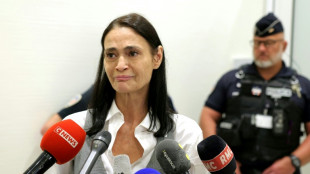 France court upholds Polanski acquittal in defamation case
France court upholds Polanski acquittal in defamation case
-
UK bans daytime TV ads for cereals, muffins and burgers

-
 Palace's Guehi to face no formal action over 'Jesus' message on rainbow armband
Palace's Guehi to face no formal action over 'Jesus' message on rainbow armband
-
UK faces trade balancing act with Trump, EU

-
 Iran releases Nobel Peace laureate Mohammadi on medical leave: lawyer
Iran releases Nobel Peace laureate Mohammadi on medical leave: lawyer
-
UNESCO grants heritage status to Aleppo soap as Syria war flares

-
 Ghana's illegal mining boom seeps into presidential election
Ghana's illegal mining boom seeps into presidential election
-
Inconsistent Spurs 'progressing in all aspects': Postecoglou

-
 France's Orano says Niger junta controls uranium firm
France's Orano says Niger junta controls uranium firm
-
Seoul stocks weaken, Paris edges up tracking political turmoil

-
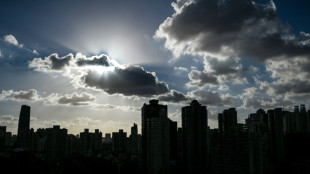 China reports warmest autumn since records began
China reports warmest autumn since records began
-
French marine park to close over law banning killer whale shows

-
 Thousands march demanding S. Korea president resign over martial law debacle
Thousands march demanding S. Korea president resign over martial law debacle
-
Taiwan romance novelist Chiung Yao dies at 86

-
 In Angola, Biden promises to invest differently to China
In Angola, Biden promises to invest differently to China
-
Syrian army launches counteroffensive against rebels

-
 Evenepoel says 'long journey' ahead after postal van collision
Evenepoel says 'long journey' ahead after postal van collision
-
South Korea's day of rage as Yoon's martial law founders

-
 UK police question killer nurse Letby over further baby deaths
UK police question killer nurse Letby over further baby deaths
-
Cameroon curator Kouoh is first African woman to lead Venice Biennale


'Sick and scared': Burundi treats mpox patients
"I felt very sick and scared, I couldn't even walk any more," said mpox patient Samuel Nduwimana in Burundi's economic capital Bujumbura, one of around 170 confirmed cases in the small African country.
Talking to AFP from an isolation ward in the city's King Khaled Teaching Hospital, Nduwimana's face and upper body are scattered with painful-looking marks.
"I started to lose my appetite, I had a fever and I felt a small pimple on my genitals that hurt a lot," he said, describing the onset of symptoms, which he hoped was malaria.
"I didn't even know what I was suffering from," said Nduwimana, but as his conditions worsened he eventually sought treatment.
Mpox, formerly known as monkeypox, is caused by a virus transmitted to humans by infected animals that can also be passed between humans through close physical contact.
While it has been known for decades, a new more deadly and more transmissible strain -- known as Clade 1b -- has driven the recent uptick in cases.
Cases in East Africa have surged, with Burundi confirming 171 earlier this week, Kenya finding its second case on Friday and neighbouring Uganda reporting four cases in total.
Globally, cases have also been reported in Europe and Asia, with the World Health Organization declaring an international health emergency over the latest outbreak.
Burundian authorities are scrambling to combat the outbreak, with doctor Odette Nsavyimana treating those infected.
"Sometimes patients come in a severe, critical condition with a fever of 39 degrees Celsius," she told AFP, swathed in protective gear including gloves and a mask.
The disease causes "very painful and itchy lesions that need urgent treatment", she said.
- 'It hurts a lot' -
The centre provides free treatment and has a capacity for around 50 patients, according to Liliane Nkengurutse, national director for the Centre for Public Health Emergency Operations.
Cases of the disease were increasing, after it spread from "hot zones" on the country's border with the Democratic Republic of Congo (DRC) with "cases (now) almost all over the country", she told AFP.
The DRC has recorded 16,700 cases and more than 570 deaths this year, according to the central African country's health minister.
In Burundi, Nkengurutse said, they were acting quickly to identify, isolate and then treat patients.
"We still don't have any deaths, because we're lucky enough to be able to detect cases quickly and take care of them early," she said.
In the ward, Nduwimana, who praised the free treatment he had received, had a message for those who are worried they might have mpox.
"They need to rush to hospital for treatment," he said.
"This epidemic is very serious, it hurts a lot, you're in too much pain, and you don't know what to do."
E.Schubert--BTB

